
General Knowledge For Trivia People
Difficulty : Medium-Easy Get 7/10 correct to pass the quiz
Question 1 of 10
Which ex US president founded the Clinton Global Initiative?
Question 2 of 10
In what U.S. state can you visit the Statue of Liberty?
Advertisement
Question 3 of 10
In what U.S. state are the cities of Boston and Cambridge located?
Question 4 of 10
Stockholm is the capital city of which European country?
Question 5 of 10
In what U.S. state are the cities of Norfolk, Chesapeake and Richmond located?
Question 6 of 10
Which part of the UK is traditionally identified with tartan?
Question 7 of 10
On what continent is the Sahara Desert?
Advertisement
Question 8 of 10
Which of the following countries is landlocked?
Question 9 of 10
Belgium has a border with how many countries?
Question 10 of 10
The blue variety of which plant is used to make Tequila?
Advertisement

MORE QUIZZES
1950s Song Quiz
Who sang these 10 songs?
Who sang these 10 songs?
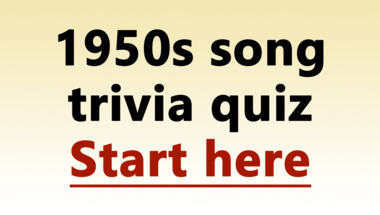
10 trivia questions
Mixed Knowledge quiz
Mixed Knowledge quiz
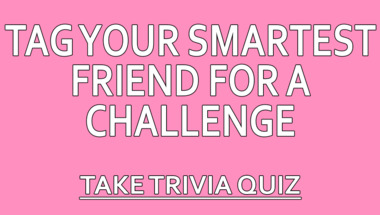
10 food and cooking question
10 questions to test your knowledge
10 questions to test your knowledge
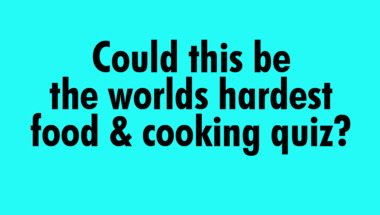
Trivia * Quiz
10 * Questions
10 * Questions

History Quiz
10 questions
10 questions
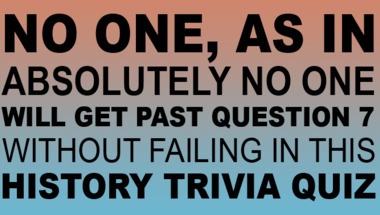
General Knowledge For Trivia
10 hard questions
10 hard questions

General trivia quiz
10 fun questions
10 fun questions
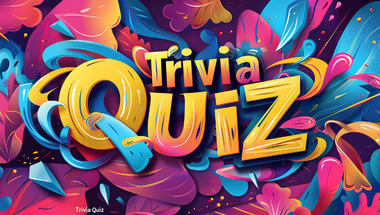
History Trivia Quiz (10 ques
Come, let us play!
Come, let us play!

Groovy 60s Hits: 10-Question
How many right answers can you score?
How many right answers can you score?

Advertisement
Latin Words Quiz
How many correct will you get?
How many correct will you get?
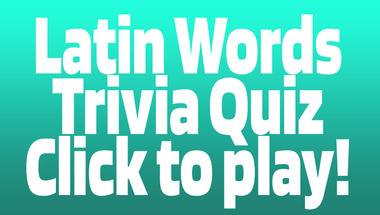
Trivia IQ test
Are you a knowledge genius?
Are you a knowledge genius?

Food & Cooking Trivia Qu
10 home chef questions
10 home chef questions

Quite hard trivia quiz
10 thrilling questions
10 thrilling questions

1970s TV Quiz
How many correct answers will you get?
How many correct answers will you get?

General trivia quiz
10 mixed questions
10 mixed questions

General Trivia Quiz
10 mixed questions
10 mixed questions

10 quite difficult trivia qu
Let's test your trivia skills!
Let's test your trivia skills!
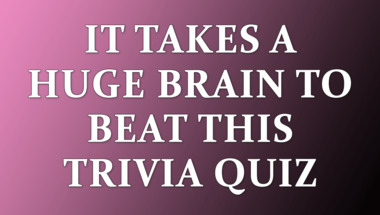
Hard trivia challenge
How smart are you really?
How smart are you really?

Advertisement
Trivia Quiz : Genius Level
How many correct will you get?
How many correct will you get?
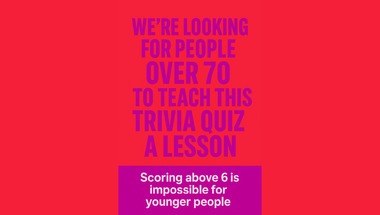
Hard Food Quiz
10 questions to test your knowledge
10 questions to test your knowledge

10-question mixed knowledge
How many questions will you ace in this 10-qu..
How many questions will you ace in this 10-qu..

Mixed category trivia quiz
10 fun and challenging questions
10 fun and challenging questions

1950s Song Quiz
How many songs do you know?
How many songs do you know?
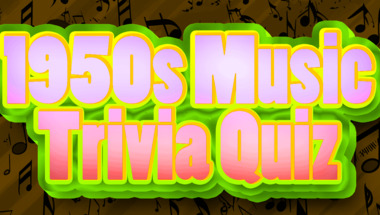
Quiz : Science and more
10 mixed trivia questions
10 mixed trivia questions
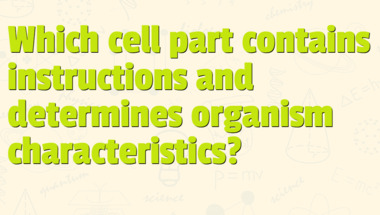
General Knowledge Trivia Cha
10 random questions
10 random questions
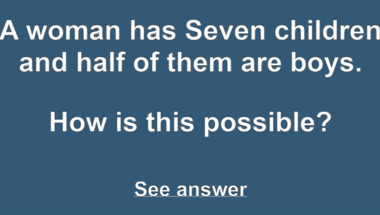
Trivia quiz for people who a
How far can you stretch this quiz?
How far can you stretch this quiz?
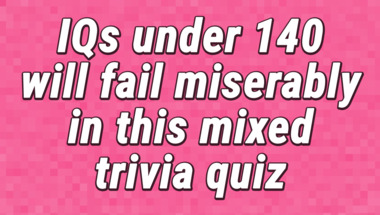
History Quiz
10 questions of about the past
10 questions of about the past

Advertisement
10-question general knowledg
How many questions will you ace in this 10-qu..
How many questions will you ace in this 10-qu..
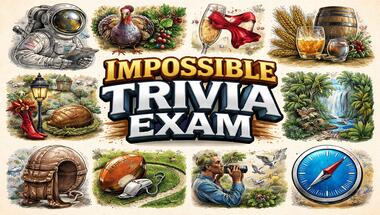
History Quiz (10 questions)
Have fun!
Have fun!

Trivia IQ test
Are you a knowledge genius?
Are you a knowledge genius?

Around The World
Can you answer all her 10 questions?
Can you answer all her 10 questions?

10-question globetrotter cha
How many right answers can you score?
How many right answers can you score?
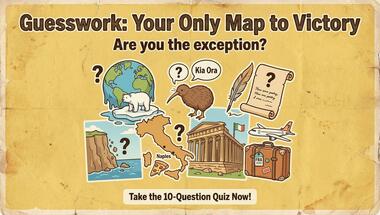
1960s Song Quiz
How many songs do you know?
How many songs do you know?
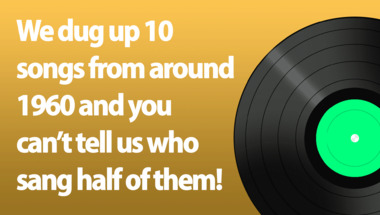
Trivia Quiz Challenge
What will your score be?
What will your score be?
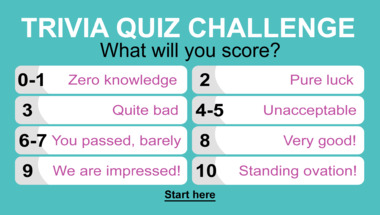
Grammar and words quiz
How smart are you really?
How smart are you really?

1960s Song Quiz
Can you name the artists?
Can you name the artists?

Advertisement
World History Quiz
10 mixed questions
10 mixed questions
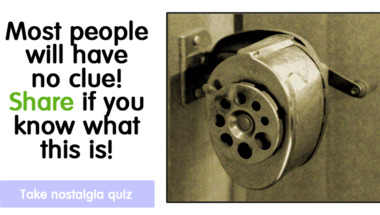
General trivia quiz with mix
10 questions
10 questions
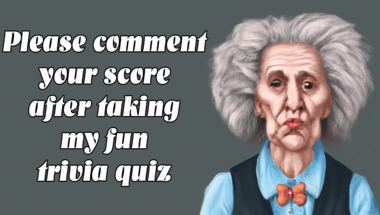
General trivia fun
10 questions
10 questions

Cooking Quiz
10 mixed questions for you
10 mixed questions for you

Spelling Quiz
How many correct will you get?
How many correct will you get?
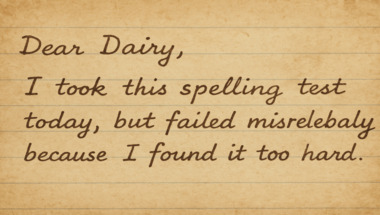
Quiz : 10 songs from the 196
Tell your final score in the comments
Tell your final score in the comments
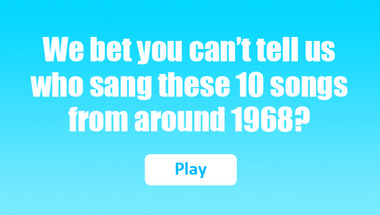
General Trivia IQ challenge
10 mixed trivia questions
10 mixed trivia questions

Quiz : European History 1940
Let's test your trivia skills!
Let's test your trivia skills!
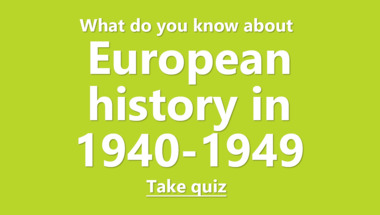
Quiz on history for the most
10 exciting history trivia questions
10 exciting history trivia questions
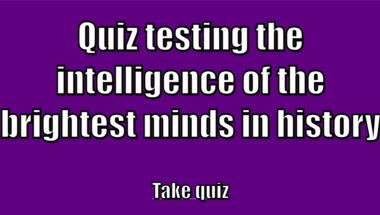
Advertisement
General Knowledge For Trivia
How many correct answers will you get?
How many correct answers will you get?

General Knowledge For Trivia
How many correct answers will you get?
How many correct answers will you get?

Fun trivia quiz
10 fun questions
10 fun questions
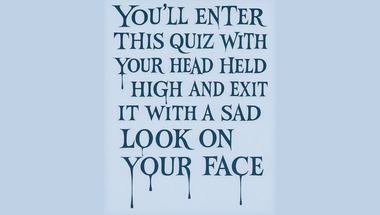
Quiz : Geography and more
10 hard questions to have fun with
10 hard questions to have fun with
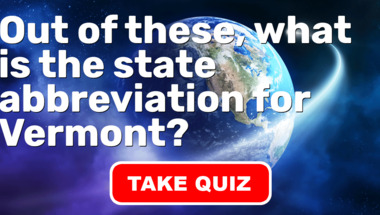
Trivia Quiz for everyone on
A fun trivia quiz with 10 questions
A fun trivia quiz with 10 questions

World History Quiz
Can you even get 5 out of 10 correct?
Can you even get 5 out of 10 correct?

Easy quiz with two tricky qu
Will you stumble?
Will you stumble?
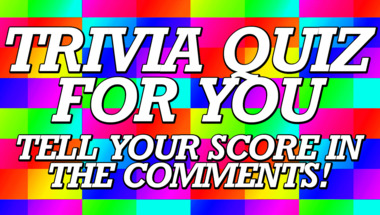
Movie Quiz
10 questions
10 questions

Mixed General Quiz
10 fun questions
10 fun questions

Advertisement
10-question mixed knowledge
How many questions will you ace in this 10-qu..
How many questions will you ace in this 10-qu..

Spelling Quiz
10 mixed questions
10 mixed questions

A quiz about the songs lyric
How many of these fantastic songs do you reme..
How many of these fantastic songs do you reme..

Quiz on general knowledge
10 questions with a mix of topics
10 questions with a mix of topics
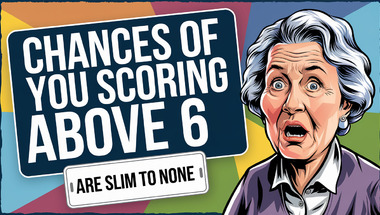
10 General Knowledge Questio
Post your score in the comments!
Post your score in the comments!
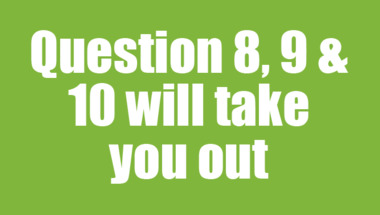
Latin Words Quiz (Expert Lev
10 questions to test your knowledge
10 questions to test your knowledge
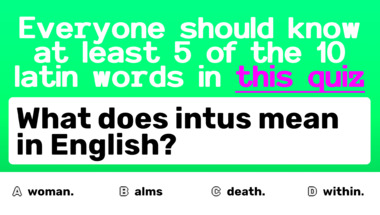
10-question fun fact challen
How many right answers can you rack up?
How many right answers can you rack up?

General Trivia Quiz
Only experts will nail this one
Only experts will nail this one

Hard trivia exam
10 question trivia exam
10 question trivia exam
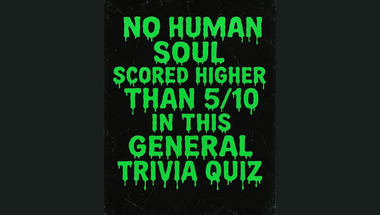
Advertisement
A fun history quiz
Are you ready? :)
Are you ready? :)

60s Song Quiz
10 songs to guess
10 songs to guess
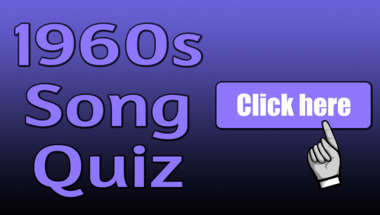
Trivia Quiz (General Knowled
10 questions to conquer
10 questions to conquer

General Trivia Quiz
10 mixed genereal questions
10 mixed genereal questions

Mixed knowledge questions
How smart are you really?
How smart are you really?
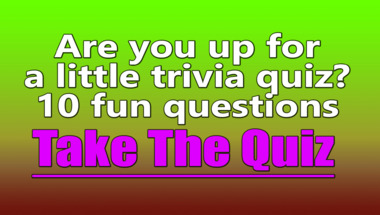
General Trivia Quiz
How many correct will you get?
How many correct will you get?

Mixed trivia quiz for all of
How many correct answers will you get?
How many correct answers will you get?

Movie Quiz
10 mixed questions to have fun with
10 mixed questions to have fun with

10-question fun fact challen
How many questions will you ace in this 10-qu..
How many questions will you ace in this 10-qu..

Advertisement
Trivia Quiz : Genius Level
How many correct will you get?
How many correct will you get?
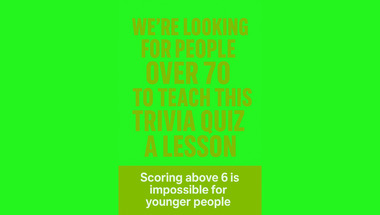
Trivia Quiz
10 questions
10 questions
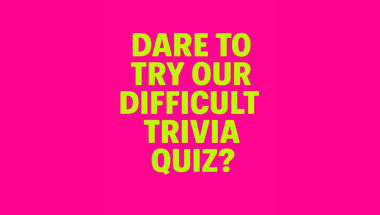
A fun history quiz
Let me know your score in the comments
Let me know your score in the comments
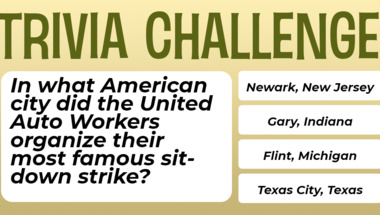
World History Trivia Quiz
10 mixed questions
10 mixed questions

Amazing Trivia Quiz
10 hot questions
10 hot questions

General trivia quiz for the
10 Impossible Questions
10 Impossible Questions
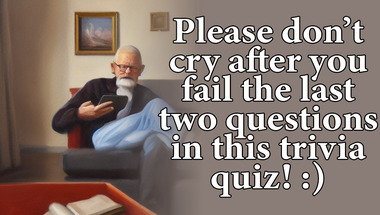
Trivia Quiz for smart people
10 mixed up questions in a range of categorie..
10 mixed up questions in a range of categorie..

Trivia Test
How many correct answers will you get?
How many correct answers will you get?
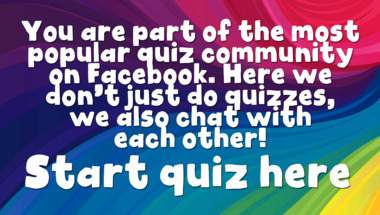
Mixed Trivia Questions
10 questions to test your knowledge
10 questions to test your knowledge

Advertisement
Movie Quote Quiz
Do you know all these movie quotes?
Do you know all these movie quotes?
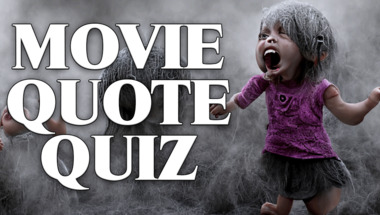
Quiz for everyone
But only few will master it
But only few will master it

Mixed General Trivia Quiz
10 questions to test your knowledge
10 questions to test your knowledge
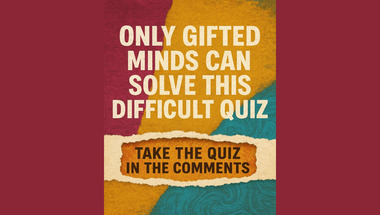
Science & Nature Trivia Quiz
10 Almost Impossible Questions
10 Almost Impossible Questions

Quiz : Science and more
10 mixed trivia questions
10 mixed trivia questions
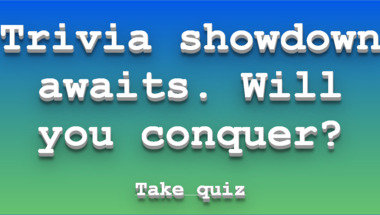
Food and cooking quiz
10 home chef questions
10 home chef questions

General Trivia Quiz
10 mixed questions for you to have fun with
10 mixed questions for you to have fun with
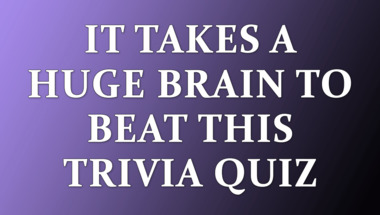
Quiz : Do you remember the 1
If you do well, let us know in the comments
If you do well, let us know in the comments

Trivia Quiz
10 questions to test your knowledge
10 questions to test your knowledge
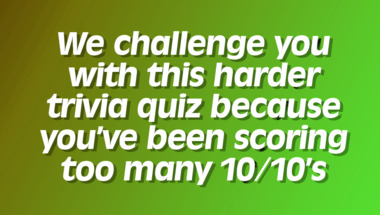
Advertisement
Movie Quiz For Experts
10 Questions To Make Your Head Spin
10 Questions To Make Your Head Spin

World Geography Quiz
Where have you been?
Where have you been?
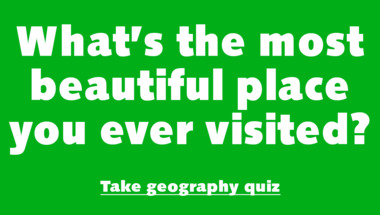
A quiz about knowledge
10 questions from us to you!
10 questions from us to you!
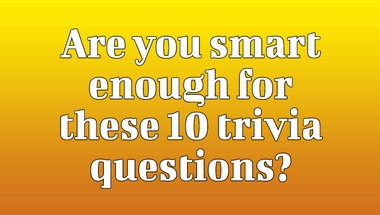
Music Quiz
How high can you score?
How high can you score?

Trivia Quiz : General Knowle
10 quite impossible questions
10 quite impossible questions
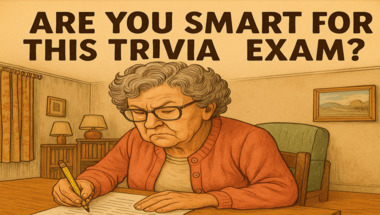
General Trivia Quiz
10 mixed
10 mixed
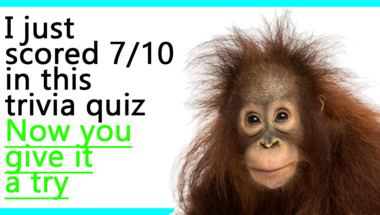
10 questions about cooking
How many correct will you get?
How many correct will you get?

Quite hard quiz with 10 triv
Click here to take the quiz
Click here to take the quiz

1970s Song Quiz
We tell you the artist, you tell us the song!
We tell you the artist, you tell us the song!

Advertisement
Movie Quiz
10 mixed questions
10 mixed questions
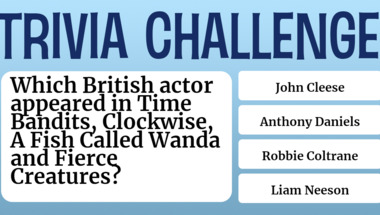
** General Trivia Quiz **
>> 10 mixed questions <<
>> 10 mixed questions <<

Who sang these 10 famous son
Which ones will you remember?
Which ones will you remember?

A quiz about knowledge
10 mixed questions
10 mixed questions
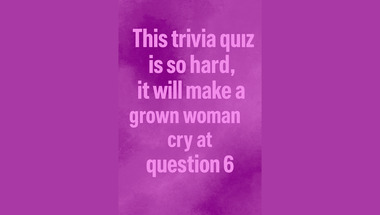
Quiz : Science and more
10 mixed trivia questions
10 mixed trivia questions

Quiz for people 50+
10 mixed questions
10 mixed questions
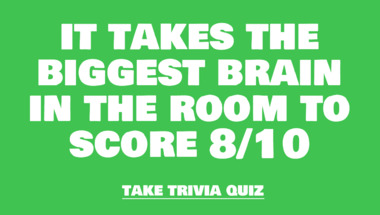
General Knowledge Quiz
10 mixed questions
10 mixed questions
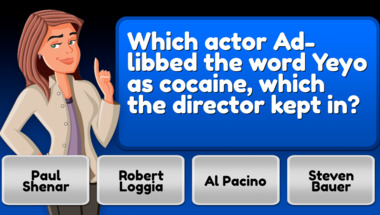
Amazing Trivia Quiz
10 hot questions
10 hot questions
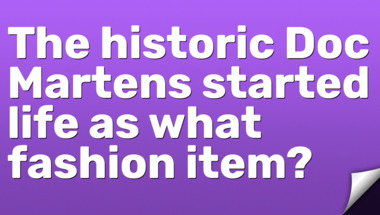
10 trivia questions for smar
How high will you score?
How high will you score?

Advertisement
10 General Knowledge Questio
10 Trivia Questions
10 Trivia Questions
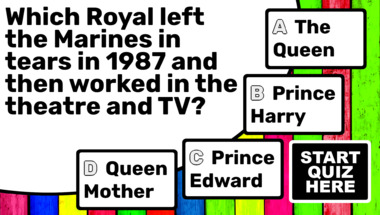
Quiz : food & cooking
Take this quiz and post your score in the com..
Take this quiz and post your score in the com..

Jobs of the past quiz
10 questions to test your knowledge
10 questions to test your knowledge
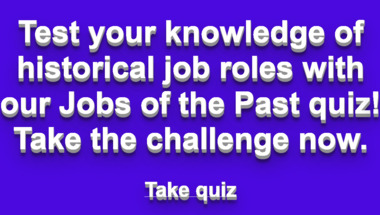
10-question blast from the p
How many questions will you ace in this 10-qu..
How many questions will you ace in this 10-qu..

Super fun trivia quiz
10 questions in mixed categories
10 questions in mixed categories

Music Quiz
How high can you score?
How high can you score?

10 hard history questions
You won't get close to 10/10 in this quiz
You won't get close to 10/10 in this quiz

1960s song quiz
10 songs to guess
10 songs to guess
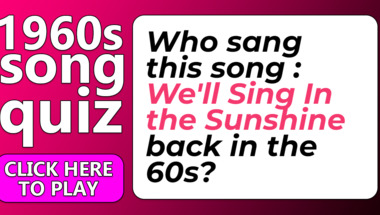
General Trivia Quiz
We mixed up 10 good questions here
We mixed up 10 good questions here

Advertisement
History Quiz
10 questions to test your knowledge
10 questions to test your knowledge
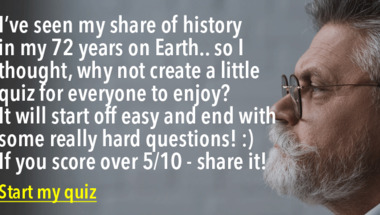
10 mixed category trivia que
A quiz for our smartest followers
A quiz for our smartest followers
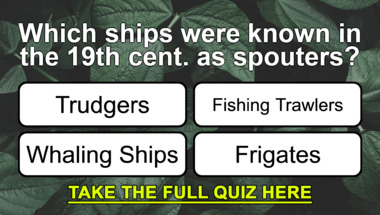
Hard trivia challenge
How smart are you really?
How smart are you really?
